 |
| Police clash with a mob of Trump supporters who breached security and stormed the U.S. Capitol building on Jan. 6, 2021. Photo: Mostafa Bassim/Anadolu Agency via Getty Images |
What happens when an advanced nation elects an incompetent oaf with a narcissistic personality disorder and the emotional maturity and self-control of an over-privileged adolescent, gives him a Twitter account and his own room and tells him he runs the world?
We spent the last 4 years finding out when America did just that in 2016. As this article by Michael Dimock and John Gramlich of the Pew Research Center, based largely on Pew Research polling over the period, shows, it left American society and the Republican Party deeply divided and at one point on the brink of violent insurrection, and America massively diminished in the eyes of the world.
Trump became the first world leader to try to govern (with his idea of government) through a Twitter account. Policies were announced and people were sacked not after discussions with colleagues and attempts to reach consensus but on a whim, often in the small hours of the morning by a Twitter tweet in response to an item on one of the right-wing disinformation TV networks, such as Fox News.
Trump seemed unable to distinguish his own personal/political interest from the interest of the nation he was supposed to be governing.
| Democrats, liberals, leftists, Obama, Clinton, Biden, Schumer, or Pelosi | 4390 Tweets (17%) |
| Russia, Mueller, collusion, hoaxes, impeachment, or related terms | 2430 Tweets (9%) |
| Trump (saying his own name) | 2007 Tweets (8%) |
| Fake news, the media, or outlets he dislikes like CNN and NYT | 1893 Tweets (7%) |
| Negative words like terrible or horrible, or insults like loser and stupid | 1766 Tweets (7%) |
| Jobs, labor, workers, wages, or employment | 1684 Tweets (6%) |
| Fox News and hosts like Sean Hannity | 1488 Tweets (6%) |
| Republicans, conservatives, McConnell, McCarthy, Ryan, Bush, Romney, or McCain | 1298 Tweets (5%) |
| The election, ballots, postal service, mail-ins, and related terms | 1209 (5%) |
| Immigration, border security, or the wall | 1146 Tweets (4%) |
| Polls, ratings, crowds, or approval | 908 Tweets (3%) |
| Crime, police, or law and order | 810 Tweets (3%) |
| The military or veterans (many stock endorsements for Republican candidates) | 710 Tweets (3%) |
| Taxes | 629 Tweets (2%) |
| Coronavirus, COVID, or viruses in general | 606 Tweets (2%) |
| Trade, tariffs, or the WTO | 551 Tweets (2%) |
| Guns, the 2nd amendment, or the NRA (almost exclusively used as stock endorsements/disses for candidates) | 424 Tweets (2%) |
| Health care or ObamaCare and related terms like prescriptions, premiums, and deductibles | 420 Tweets (2%) |
| Stocks, DOW, NASDAQ, or the market | 292 Tweets (1%) |
| Christianity, God, Jesus, the bible, or religion | 248 Tweets (1%) |
| Education, student debt, teachers, or related terms | 194 Tweets (0.7%) |
| Social Security, Medicare, or Medicaid | 45 Tweets (0.2%) |
| The debt or deficit | 41 Tweets (0.2%) |
| Abortion or Roe v. Wade | 17 Tweets (0.1%) |
| Climate change (mostly mocking) | 8 Tweets (<0.1%) |
| Minimum wage | 1 Tweet (<0.1%) |
| Artificial intelligence, automation, clean energy/jobs, or universal basic income | 0 Tweets (0.0%) |
| Source: Trump Twitter Achive V2 | |
As his term progressed and the coronavirus pandemic crisis in the USA deepened, he become more and more self-justificatory and egocentric as his tweets showed. As his popularity waned and defeat at the 2020 polls loomed, he became more and more obsessive and his tweets increased in number proportionately. As Dimock and Gramlich point out:
Other presidents tried to unify the nation after turning from the campaign trail to the White House. From his first days in Washington to his last, Trump seemed to revel in the political fight. He used his presidential megaphone to criticize a long list of perceived adversaries, from the news media to members of his own administration, elected officials in both political parties and foreign heads of state. The more than 26,000 tweets he sent as president provided an unvarnished, real-time account of his thinking on a broad spectrum of issues and eventually proved so provocative that Twitter permanently banned him from its platform. In his final days in office, Trump became the first president ever to be impeached twice – the second time for inciting an insurrection at the U.S. Capitol during the certification of the election he lost – and the nation’s first chief executive in more than 150 years to refuse to attend his successor’s inauguration.As his incompetence became more and more apparent and as his narcissism got in the way of making the right decisions as his scientific advisors were advising him over the Coronavirus pandemic, for instance, so his approval ratings fell, never rising much about 50% at best and ending at 29%, the lowest since to 24% approval for George W Bush at the end of his second term, which ended with the collapse of Lehman Brothers Bank due to the sub-prime mortgage scandal and the resulting global banking melt-down.
Trump achieved some notable records, that few future presidents will hope to better:
- In 2016 he lost the popular vote by over 3 million votes - then a record margin for any candidate subsequently elected by the Electoral College.
- In 2020 he again lost the popular vote, this time by an even bigger margin of over 5 million votes on a record turnout.
- The only president to have been impeached twice and the only one to be impeached having already left office.
- The only candidate in modern times to have declared victory in the election while the count was still underway in several key swing states and then tried to have the counting stopped because he was losing.
- The only losing candidate to refuse to accept defeat, to attempt to comit electoral fraud by pressurising state officials to falsify the result and to apply to courts, including SCOTUS to have the vote declared invalid and himself declared the winner, based on nothing more than his own exaggerated claims about the size of the crowds at his rallies.
- The only candidate in more that 150 years to refuse a smooth handover of power to the winner and to attend his successor's inauguration.
- The only former president to be denied briefings from the US security services.
As Americans became more polarised by Trump's combativeness in rounding on and attacking just about everyone in the Republican demonology, so their perception of what he was saying polarized as did opinions on his character:
In a 2019 survey, at least three-quarters of Republicans said the president’s words sometimes or often made them feel hopeful, entertained, informed, happy and proud. Even larger shares of Democrats said his words sometimes or often made them feel concerned, exhausted, angry, insulted and confused.
The strong reactions that Trump provoked appeared in highly personal contexts, too. In a 2019 survey, 71% of Democrats who were single and looking for a relationship said they would definitely or probably not consider being in a committed relationship with someone who had voted for Trump in 2016. That far exceeded the 47% of single-and-looking Republicans who said they would not consider being in a serious relationship with a Hillary Clinton voter.
 This polarisation was reflected in a widening gap between supporters of the two main parties on a range of issues:
This polarisation was reflected in a widening gap between supporters of the two main parties on a range of issues:The average gap between the parties on a range of 10 issues polled by Pew Research, widened from 15% in 1994 to 36% by 2017. Consciously or otherwise, Trump's tactic of divide and rule seemed to be paying off, certainly in terms of consolidating his base in the conservative, white supremacist, evangelical Christian, neo-fascist groups.
Although, maybe surprisingly, this appeal to the right-wing racist elements in American society didn't seem to be strongly reflected in the number of tweets he posted on Twitter on subjects dear to the heart of these reactionary elements, as the table above shows.
There is actually comparatively very little about God, Jesus and the Bible, or about gun control or Roe vs. Wade, despite the belief in evangelical Christian circles that God had put Trump in the White House to implement a strictly conservative fundamentalist Christian agenda and turn the USA into a theocratic fundamentalist Christian state.
It is debateable whether this apparent 'divide and rule' tactic was a strategic policy decision by Trump, although it could well have been that of his right-wing extremist tacticians, such as Steve Bannon, or whether it followed naturally from Trump's narcissism, where his natural inclination was to hit out at anyone who disagreed with him, sometimes on the most trivial of issues. A case in point was his handling of the coronavirus pandemic where he made a tactical error at the start of the emergency and ended up in virtual civil war with his scientific advisers and those whose job it was to ensure the health of the nation.
Early in his presidency, in his zeal to undo everything that President Obama had achieved, he dismantled the contingencies put in place by Obama following the SARS and 'Swine flu' pandemics, in preparation for another, possibly worse one.
When the SARS-CoV-2 virus became pandemic, rather than admit he had been wrong to dismantle the measure Obama had put in place, which would have been tantamount to admitting Obama was right, with his narcissistic personality disorder he was psychologically incapable of doing any such thing, so he stuidly made himself hostage to fortune and tried to brave it out by down-playing the seriousness of the pandemic, and minimising the risk the virus presented, declaring at one point that it would all be over by April (2020) and was being exaggerated by Democrats for political gain. Many of his supporters became convinced the pandemic was a hoax as part of a 'deep state' plot to close the churches and ruin businesses.
This in turn meant he was not prepared to back down on that error and support a full lockdown as he was being advised to do. Failing completely to comprehend the seriousness of the situation, instead, he continued to flout the social distancing measures, discouraged people from wearing a face mask and, as the number of deaths inevitably grew, tried to bully medical officials into falsifying the figures to make it look like he was right all along and briefed against leading experts in the field such as the highly respected, award-winning virologist and NIH Director, Dr Anthony Fauci, who had previously advised several other presidents.
 |
Source: Johns Hopkins Univerity Coronavirus Resource Center (9 Feb, 2021) |
And his supporters, many of whom had come to believe he was a divinely inspired messianic figure, fighting a Satanic paedophile ring running the 'deep state', with the pandemic 'hoax' all part of their plot, believed him!
Consequently, this divided Americans along party-political lines and social distancing and wearing a face-mask became political acts and Republican election rallies became super-spreader events, as did church services held by evangelical Christian groups now firmly in the Trump camp on the issue. With opinion polls showing that evangelical Christians were amognst the least concerned for the health and welfare of others, it was hardly surprising that these supposedly 'pro-life' conservatives were keen to place their own freedom from even mild inconvenience above the lives of others.
As a direct consequence of that initial blunder and Trump's subsequent inability to admit he was wrong and that his scientific advisers really did know better than he did, America has had the worst pandemic of every other nation, with 25% of global deaths being American and a peak of new cases by early January 2021 of over 250,000 cases a day, and a daily death-toll which exceeded that of 9/11 and Pearl Harbour. In measures to contain the pandemic and treat the victims, America under Trump performed worse than most third-world economies with minimal standards of health care.
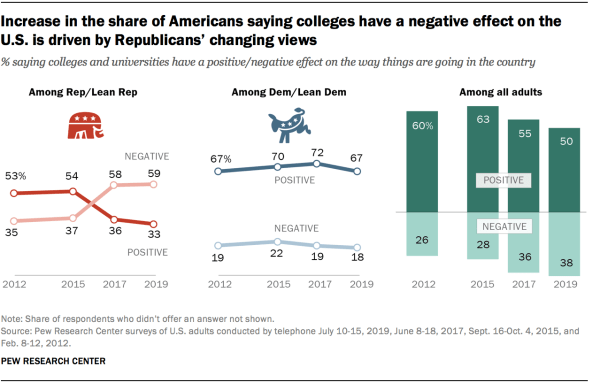 Along with Trump's demonisation of science and attacks on the integrity of any experts who disagreed with him or who pointed out that things in Trump's America were far from great, came a demonisation of intellectuals generally. They challenged Trump's and his growing cult's view of himself as the authority on just about everything, so needed to be taken down and put in their place. Aditionally, Republican's were becoming desperate for scapegoats to blame. Consequently, a wide gap opened up between Republican and Democrats in their perception of the place of higher education:
Along with Trump's demonisation of science and attacks on the integrity of any experts who disagreed with him or who pointed out that things in Trump's America were far from great, came a demonisation of intellectuals generally. They challenged Trump's and his growing cult's view of himself as the authority on just about everything, so needed to be taken down and put in their place. Aditionally, Republican's were becoming desperate for scapegoats to blame. Consequently, a wide gap opened up between Republican and Democrats in their perception of the place of higher education:
Between 2015 and 2017, the share of Republicans who said colleges and universities were having a negative effect on the way things were going in the U.S. rose from 37% to 58%, even as around seven-in-ten Democrats continued to say these institutions were having a positive effect.
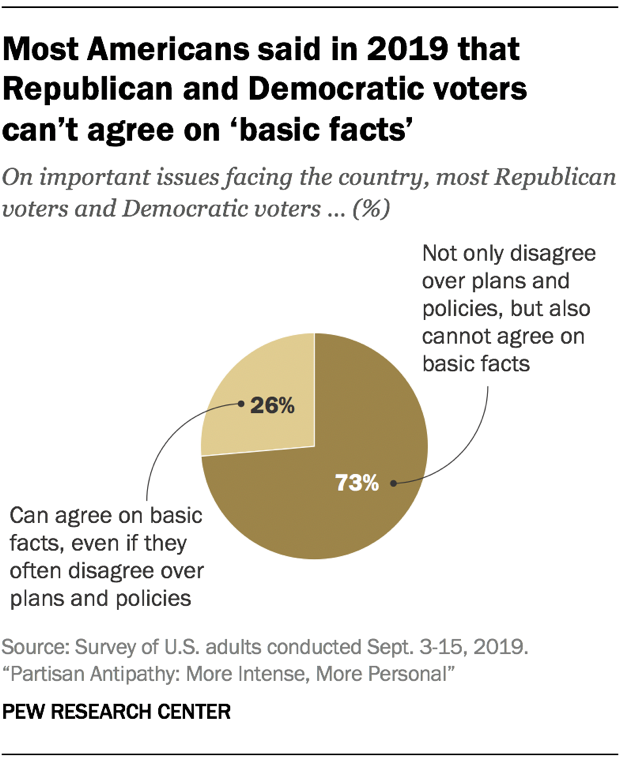 Along with the rejection of the news coming from the leading news agencies and news media which was contradicting Trump's preferred view of the world and America's place in it, came a growth in sources of 'alternative facts' and of the influence of those sources. News media that told the truth was attacked and branded as 'fake news' while the real fake news was held up as truth. Consequently, America became polarised in it's sources with each side having its own facts. Republicans overwhelmingly turned to the right-wing disinformation channel, Fox News, for their information whilst Democrats turned to mainstream channels such as CNN.
Along with the rejection of the news coming from the leading news agencies and news media which was contradicting Trump's preferred view of the world and America's place in it, came a growth in sources of 'alternative facts' and of the influence of those sources. News media that told the truth was attacked and branded as 'fake news' while the real fake news was held up as truth. Consequently, America became polarised in it's sources with each side having its own facts. Republicans overwhelmingly turned to the right-wing disinformation channel, Fox News, for their information whilst Democrats turned to mainstream channels such as CNN.
Some of the media organizations Trump criticized most vocally saw the biggest increases in GOP distrust over time. The share of Republicans who said they distrusted CNN rose from 33% in a 2014 survey to 58% by 2019. The proportion of Republicans who said they distrusted The Washington Post and The New York Times rose 17 and 12 percentage points, respectively, during that span.
In addition to their criticisms of specific news outlets, Republicans also questioned the broader motives of the media. In surveys fielded over the course of 2018 and 2019, Republicans were far less likely than Democrats to say that journalists act in the best interests of the public, have high ethical standards, prevent political leaders from doing things they shouldn’t and deal fairly with all sides. Trump’s staunchest GOP supporters often had the most negative views: Republicans who strongly approved of Trump, for example, were much more likely than those who only somewhat approved or disapproved of him to say journalists have very low ethical standards.
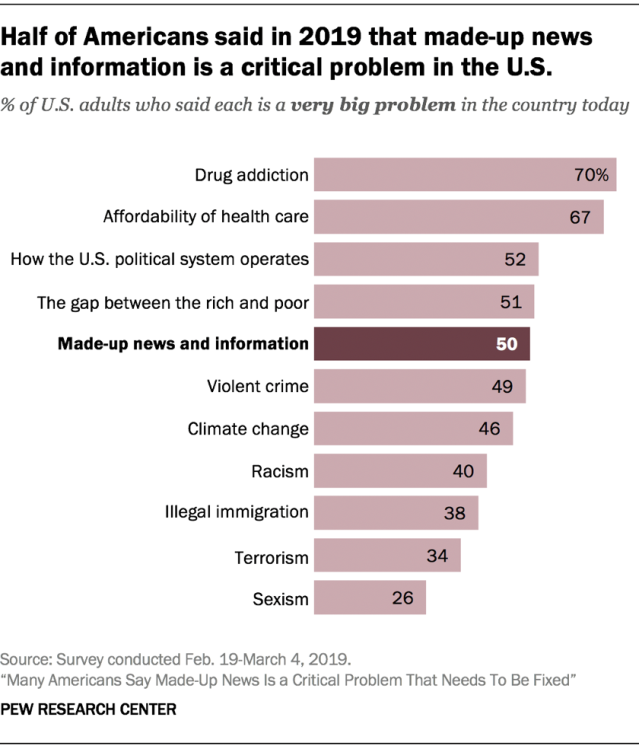 With both sides believing the other's sources were 'fake' the perception that 'made-up news' was a major problem in the USA became a major concern for most Americans. In the Trumpist 'post-truth' age, the other point of view could be dismissed as 'fake news' and a patently absurd opinion could be held with great confidence. This was to be a major problem in the pandemic, making it difficult to implement measures to slow the spread of the virus.
With both sides believing the other's sources were 'fake' the perception that 'made-up news' was a major problem in the USA became a major concern for most Americans. In the Trumpist 'post-truth' age, the other point of view could be dismissed as 'fake news' and a patently absurd opinion could be held with great confidence. This was to be a major problem in the pandemic, making it difficult to implement measures to slow the spread of the virus.
Misinformation played an important role in both the coronavirus pandemic and the 2020 presidential election. Almost two-thirds of U.S. adults (64%) said in April 2020 that they had seen at least some made-up news and information about the pandemic, with around half (49%) saying this kind of misinformation had caused a great deal of confusion over the basic facts of the outbreak. In a survey in mid-November 2020, six-in-ten adults said made-up news and information had played a major role in the just-concluded election.Trump himself was the source of a great number of 'alternative facts' as he made claims based on nothing more than what he wanted the truth to be. The Washington Post documented an incredible 30,573 false or misleading claims, recording 503 false claims in a single day (the day before the election, 2 Nov, 2020).
| Claim | Fact Check | Times Repeated |
|---|---|---|
| We also built the greatest economy in the history of the world…Powered by these policies, we built the greatest economy in the history of the world. | This is Trump’s favorite false claim, so there should be no surprise he said it twice in his farewell address. (In this database, we only count a falsehood once per venue.) By just about any key measure in the modern era, Dwight D. Eisenhower, Lyndon B. Johnson and Bill Clinton presided over stronger economic growth than Trump. The gross domestic product grew at an annual rate of 2.3 percent in 2019, slipping from 2.9 percent in 2018 and 2.4 percent in 2017. But in 1997, 1998 and 1999, GDP grew 4.5 percent, 4.5 percent and 4.7 percent, respectively. Yet even that period paled in comparison with the postwar boom in the 1950s or the 1960s. Growth between 1962 and 1966 ranged from 4.4 percent to 6.6 percent. In 1950 and 1951, it was 8.7 percent and 8 percent, respectively. Meanwhile, the unemployment rate reached a low of 3.5 percent under Trump, but it dipped as low as 2.5 percent in 1953. (After the novel coronavirus tanked the economy, Trump jacked up his claim even more, falsely saying it had been the greatest economy in the history of the world.) This marks the 493rd time that Trump used a variation of this line, meaning he said it on average every other day. | 493 |
| We also got tax cuts, the largest tax cut and reform in the history of our country, by far. | This is Trump’s second favorite falsehood, and his remarks at his departure ceremony at Andrews Air Force base marks the 296th time he said it. Even before Trump’s tax cut was crafted, he promised it would be the biggest in U.S. history – bigger than Ronald Reagan’s 1981 tax cut. Reagan’s tax cut amounted to 2.9 percent of the gross domestic product and none of the proposals under consideration came close to that level. Yet Trump persisted in this fiction even when the tax cut was eventually crafted to be the equivalent of 0.9 percent of GDP, making it the eighth largest tax cut in 100 years. | 296 |
| We just got seventy five million votes. And that's a record in the history of in the history of sitting presidents. | When the counting was finished, Trump had received 74 million votes, not 75 million as he often claims — but Biden earned more than 81 million. That’s a margin of 4.5 percentage points. Biden’s margin in the popular vote is larger than Barack Obama’s victory in 2012 and George W. Bush’s victory in 2004. Trump ignores the fact that more Americans voted in the 2020 election — two-thirds of the voting eligible population — than in any other in 120 years. A big reason is Trump himself. Trump was the most polarizing president in modern political history, inspiring fierce loyalty from Republicans and deep hostility from Democrats. In 2016, a lot of voters were indifferent about both Trump and his opponent, Hillary Clinton. After the past four years, few Americans don't have strongly held opinions about Trump, helping power record turnout for his 2020 general-election opponent. | 19 |
| Our beautiful vets, they were very badly treated before we came along. And, as you know, we get them great service and we pick up the bill, and they can go out and they can see a doctor if they have to wait long periods of time. | Trump does not mention "VA Choice" but he is referring to the Veterans Access, Choice and Accountability Act that was signed by President Barack Obama in 2014, in the wake of the Phoenix VA scandal. The law allows veterans to seek private medical care, with costs covered, in cases where VA wait times exceed a certain period. One of the lead authors was the late Sen. John McCain (R-Ariz.). This is one of Trump’s most insidious falsehoods. Not only did he take more and more credit for the 2014 law as his term progressed, in public remarks, he would often erase the roles that Obama and McCain played. (“McCain didn't get the job done for our great vets and the VA, and they knew it,” he said in 2019.) Trump signed the Mission Act in 2018, an update and expansion of the Choice program. | 217 |
| All Americans were horrified by the assault on our capital. Political violence is an attack on everything we cherish as Americans. It can never be tolerated. | This statement is not especially credible in light of the president's actions on Jan. 6. "Trump at first hesitated to tell his supporters to stand down when they stormed the Capitol. He was captivated by the spectacle playing out on live television and entranced by the notion that the rioters were fighting for him, people with knowledge of the events said," The Washington Post reported. Trump resisted advice from aides to call for an end to the violence. When he finally issued a video that afternoon telling the rioters to “go home,” he also declared his support for them by saying, “We love you.” Then, for several days, Trump refused to lower Americans flags in honor of two U.S. Capitol police officers who died after the violent riot by his supporters. He finally relented after enormous public pressure. | Single claim |
| We're going to the southern border. As you know, we've completed the wall. | As of mid-January 2020, only 40 miles of Trump's border barrier had been built on land where there had been no previous barrier. The rest of the $15 billion project -- roughly 450 miles at the end of Trump's administration -- was replacement for primary or secondary fencing. Congress balked at funding the concrete barrier he envisioned, so the project evolved into the replacement of smaller, older barriers with steel bollard fencing. The Washington Post has reported that the bollard fencing is easily breached, with smugglers sawing through it, despite Trump’s claims that it is impossible to get past. Trump sometimes asserts he's completed the "wall" but his plans had called for an additional 250 miles -- which Biden said he will not build. | 112 |
| The number of cases and deaths of the China Virus is far exaggerated in the United States because of @CDCgov's ridiculous method of determination compared to other countries, many of whom report, purposely, very inaccurately and low. 'When in doubt, call it Covid.' Fake News! | Trump tries to minimize the number of deaths from covid-19 in the United States, at that point about 350,000. But he's simply wrong to say the United States inflates the number of deaths, compared to other countries. Many are counting deaths in the same way," [reported the BBC. " Italy counts any death of a patient who has Covid-19 as a death caused by Covid-19; so does Germany and Hong Kong. In the US, doctors have more discretion: they are asked to record whether the patient died 'as a result of this illness' when reporting Covid-19 deaths to the Centers for Disease Control and Prevention. It could be easy to see how a physician might believe that a Covid-19 patient who died of, say, a heart attack or brain aneurysm didn't die as a result of Covid-19, and so wouldn't report accordingly. [But] at present in the US, any death of a Covid-19 patient, no matter what the physician believes to be the direct cause, is counted for public reporting as a Covid-19 death." | Single claim |
| We saved millions of American lives. | Trump cites a possible death figure that was a worst case scenario produced by Imperial College London, which assumed that 81% of the population became infected –268 million people– and that 0.9% of them would die. It did so by also assuming people took no actions against the coronavirus -- nobody avoided crowded elevators, wore face masks, washed their hands more often, or buy gloves or hand sanitizer -- which the study itself acknowledged was unrealistic: “It is highly likely that there would be significant spontaneous change in population behavior even in the absence of government‐mandated interventions.” Moreover, even the Spanish Flu pandemic of 1918 is believed to have infected no more than 28 percent of the population, making the 81 percent figure suspect. Trump routinely mentions this figure to suggest he saved that many people from death, even as the actual death toll rises far above many of his earlier predictions. To be clear, Biden never suggested that the government should take no action, as Trump sometimes suggests. | 132 |
| Biden failed with Swine Flu! | Under fire for a sluggish response, Trump started to target the Obama administration, especially its handling of the 2009 swine flu outbreak. But it’s false to suggest Obama didn't do anything about it. In fact, Obama’s handling was widely praised at the time as the right mix of action and no overreaction. On April 26, 2009, when only 20 cases of H1N1 — and no deaths — around the country had been confirmed, the Obama administration declared H1N1 a public health emergency. The administration quickly sought funding from Congress, receiving almost $8 billion. Six weeks later, the World Health Organization declared a pandemic. On Oct. 24, after more than 1,000 Americans had died of H1N1, Obama declared a national emergency. The estimated death toll in the United States during the H1N1 epidemic was 12,469 from April 2009 to April 2010, but that was much less than a forecast of 30,000 to 90,000 deaths made in August of 2009 by the President’s Council of Advisors on Science and Technology. (Sometimes Trump claims that Biden was in charge of the effort but that's not true. And while Biden did -- once - mistakenly refer to the swine flu virus as “N1H1″ during a debate in March, 2020, the order of the two halves of the term used to describe the virus — referring to subtypes of two proteins on its surface: hemagglutinin (H) and neuraminidase (N) — is unimportant. Trump claims Biden constantly gets this mixed up.) | 62 |
| I just heard today, I thought it was three, I got four, four Nobel Peace Prizes. Can you believe it? One for the Middle East. Ru -- one for Kosovo-Serbia...And they actually nominated me for Nobel Peace Prize. | Nomination for the Nobel Peace Prize is not as “big” of a deal (or as pristine) as the president suggests. Indeed, there are 318 candidates for the 2020 prize. Moreover, it does not somehow guarantee a fond place in history. Our colleagues at Factcheck.org put it clearly: “Indeed, some of history’s most vilified figures have been nominated for the prize. Soviet dictator Joseph Stalin was nominated twice: in 1945 for his effort to end World War II and again in 1948 by a professor from the Czech Republic. And fascist Italian dictator Benito Mussolini was nominated in 1935 by two law professors, one from Germany and the other from France. (Adolf Hitler was nominated in 1939 — the nomination was later withdrawn — by “an anti-fascist member of the Swedish parliament who never intended his submission to be taken seriously,” according to Nobel archives.)” Sometimes, Trump will falsely say the news media avidly covered Barack Obama's nomination but not his; in fact, it had not been reported that Obama had been nominated, which is why Obama winning the honor was such a surprise -- and covered extensively in the media. | 28 |
Source: Washington Post Fact Checker | ||
I wonder how many of Trump's followers now believe he won four Nobel Peace Prizes, compare to Obama's paltry single award!
Trump frequently made disproven or questionable claims as president. News and fact-checking organizations documented thousands of his false statements over four years, on subjects ranging from the coronavirus to the economy. Perhaps none were more consequential than his repeated assertion of widespread fraud in the 2020 election he lost to Democrat Joe Biden. Even after courts around the country had rejected the claim and all 50 states had certified their results, Trump continued to say he had won a “landslide” victory. The false claim gained widespread currency among his voters: In a January 2021 survey, three-quarters of Trump supporters incorrectly said he was definitely or probably the rightful winner of the election.
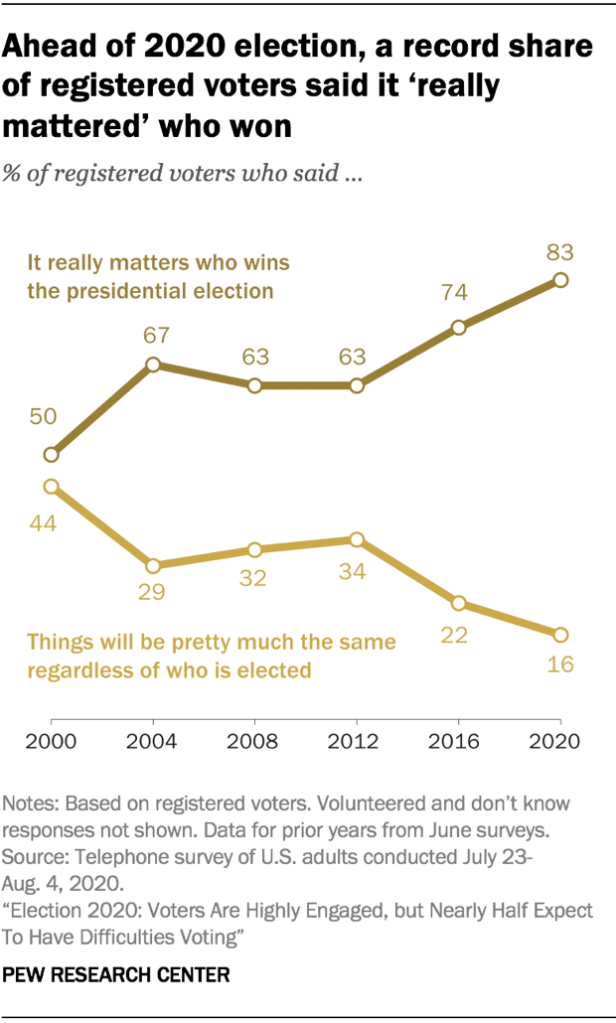 Perhaps the most lasting damage Trump has inflicted on America is a diminution in respect for the institutions of democracy itself, with many still believe Trump was robbed of victory by a corrupt system run by corrupt officials with liberal-left bias, fostered by Trump's repeated claims of widespread voter fraud, for which he could provide no substantive evidence to bring before a court in more than 60 challenges to the legitimacy of the result.
Perhaps the most lasting damage Trump has inflicted on America is a diminution in respect for the institutions of democracy itself, with many still believe Trump was robbed of victory by a corrupt system run by corrupt officials with liberal-left bias, fostered by Trump's repeated claims of widespread voter fraud, for which he could provide no substantive evidence to bring before a court in more than 60 challenges to the legitimacy of the result.But, despite his constant attacks on the electoral process - which increased as he became more and more desperate as the opinion polls were consistently forecasting a Biden/Hariss win and he was setting up a scenario with which he could claim to have been cheated out of victory if he lost, his divisive brand of politics served only to emphasise the importance of voting, hence the record turnout.
Another profound change has been in the emergence of armed white supremacist, neo-fascist self-styled militia, invariably supporting Trump and ever-present at his political rallies, from which Trump significantly failed to distance himself.
Indeed, after the Charlottesville killing in which a white supremacist deliberately drove into an anti-fascist (Antifa) group demonstrating in support of the removal of the Confederate flag from the state capitol building, killing a 32-year-old woman, Trump exacerbated the tension by condemning 'Antifa' as organized terrorists and calling the white supremacists, 'very fine people'.
Soon, 'Antifa' became a term of abuse in American politics. It's worth pausing at this point to reflect on the fact that during the Trump presidency, neo-fascists were praised as 'very fine people' whilst anti-fascists were castigated as domestic terrorists!
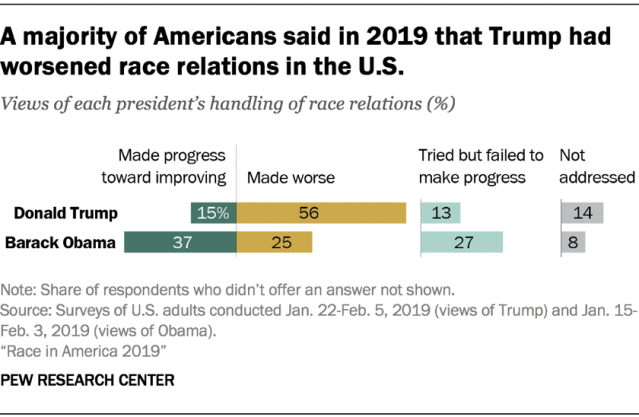
More broadly, Americans viewed Trump’s impact on race relations as far more negative than positive. In an early 2019 poll, 56% of adults said Trump had made race relations worse since taking office, compared with only 15% who said he had made progress toward improving relations. In the same survey, around two-thirds of adults (65%) said it had become more common for people in the U.S. to express racist or racially insensitive views since his election.Reflecting how closely white supremacists had identified themselves with Trump:
While Americans overall gave Trump much more negative than positive marks for his handling of race relations, there were consistent divisions along racial, ethnic and partisan lines. Black, Hispanic and Asian adults were often more critical of Trump’s impact on race relations than White adults, as were Democrats when compared with Republicans. For example, while an overwhelming majority of Democrats (83%) said in 2019 that Trump had done too little to distance himself from White nationalist groups, a majority of Republicans (56%) said he had done about the right amount. White Republicans, in particular, rejected the idea of widespread structural racism in the U.S. and saw too much emphasis on race. In September 2020, around eight-in-ten White Republicans (79%) said the bigger problem was people seeing racial discrimination where it doesn’t exist, rather than people not seeing discrimination where it really does exist. The opinions of White Democrats on the same question were nearly the reverse.
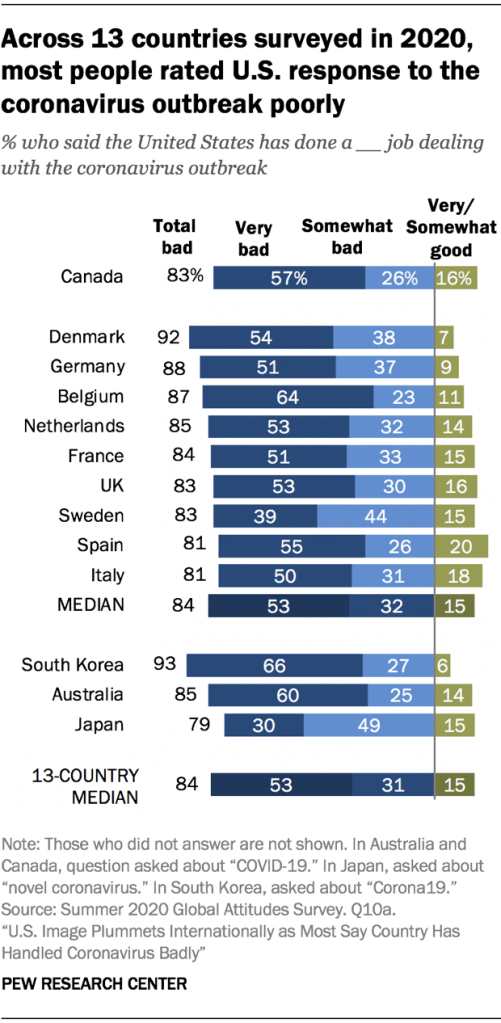 In addition to the harm Trump's divisive style has done to community relations in the USA and the respect for democracy and the institutions of government at both national and local level, Trump is likely to be remembered for his catastrophic mishandling of the coronavirus pandemic and his failure to understand the nature of the virus and the science behind control measures.
In addition to the harm Trump's divisive style has done to community relations in the USA and the respect for democracy and the institutions of government at both national and local level, Trump is likely to be remembered for his catastrophic mishandling of the coronavirus pandemic and his failure to understand the nature of the virus and the science behind control measures.Not only have 400,000 people died of the disease but the way America had handles the crisis has led to a massive fall in the perception of America in the eyes of the rest of the world:
The share of people with a favorable opinion of the U.S. fell in 2020 to record or near-record lows in Canada, France, Germany, Japan, the United Kingdom and other countries. Across all 13 nations surveyed, a median of just 15% of adults said the U.S. had done a good job responding to COVID-19, well below the median share who said the same thing about their own country, the World Health Organization, the European Union and China.One small ray of hope from the four-year disaster of the Trump presidency is that his bizarre, arrogant and childish behaviour in the final few weeks of his occupancy of the White House may have been enough for a large enough proportion of American voters to wish to see the back of him for good, and not stage a political comeback as was widely mooted, by standing again in 2024:
Some of the most pressing questions, particularly in the aftermath of the attack on the Capitol and Trump’s subsequent bipartisan impeachment, concern the future of the Republican Party. Some Republicans have moved away from Trump, but many others have continued to fight on his behalf, including by voting to reject the electoral votes of two states won by Biden.Hopefully, that 68% of Republicans who want Trump to stick around will be enough to ensure the Democrats form the majority of both Houses of Congress after 2022.
The GOP’s direction could depend to a considerable degree on what Trump does next. Around two-thirds of Americans (68%) said in January 2021 that they would not like to see Trump continue to be a major political figure in the years to come, but Republicans were divided by ideology. More than half of self-described moderate and liberal Republicans (56%) said they preferred for him to exit the political stage, while 68% of conservatives said they wanted him to remain a national political figure for many years to come.
Provided prosecutors have the courage to resist political pressures against prosecution and provided the subsequent court-cases don't degenerate into farce with endless delaying tactics and counter-claims, and provided Trump ends up in prison, this should give the message to future generations of politicians that Trump's divisive and criminal behaviour in office is not acceptable in a democratic America. If so, this could be one of the eventual benefits to emerge from the ruins Trump left the country in.
It remains to be seen whether the craven abandonment of any pretence of moral standards by evangelical - Talibangelical - Christians in their lickspittle support for Trump, despite his odious character, has irreparably damaged evangelical Christianity enough to accelerate the flood of people away from organised religions. After their craven flirtation with Trump, there must surely be many responsible American parents now asking themselves whether they really want their children growing up to be like conservative evangelicals.

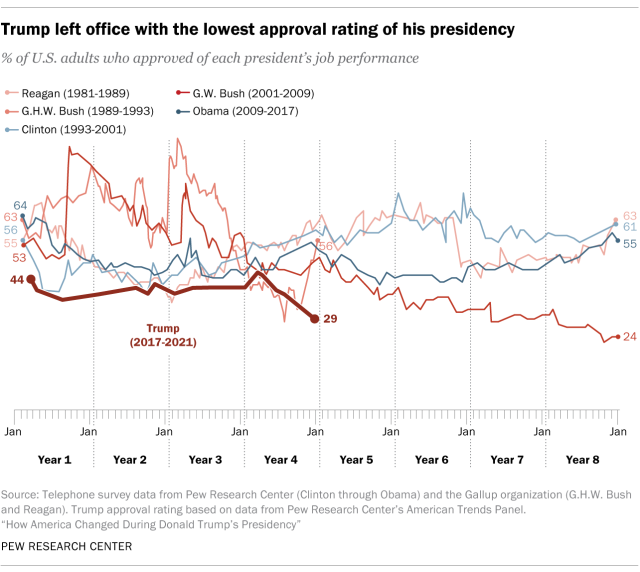
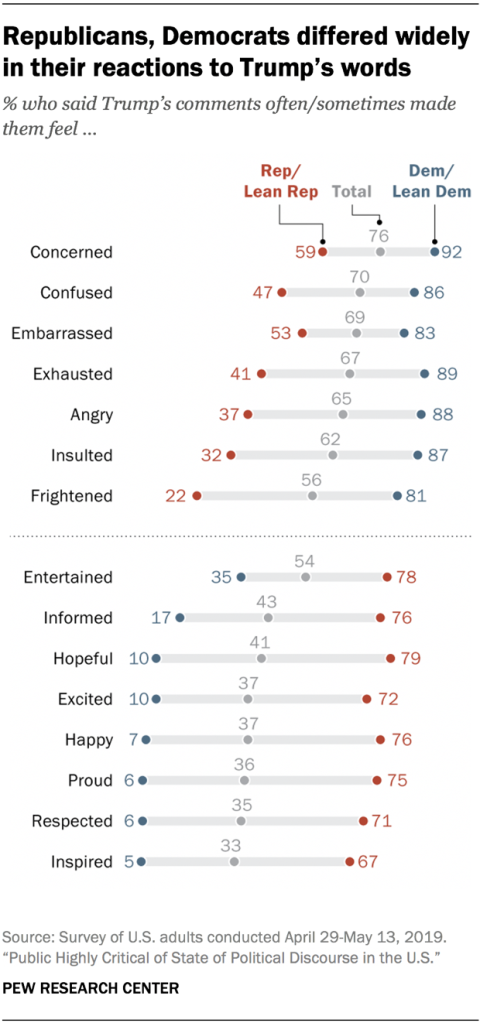

No comments :
Post a Comment
Obscene, threatening or obnoxious messages, preaching, abuse and spam will be removed, as will anything by known Internet trolls and stalkers, by known sock-puppet accounts and anything not connected with the post,
A claim made without evidence can be dismissed without evidence. Remember: your opinion is not an established fact unless corroborated.